Incidents have occurred where civil workers have been exposed to harmful gases and Volatile Organic Compounds (VOCs) whilst excavating in roadways in Hobart and Moonah. The sources of the contaminants are mostly related to the old town gas (coal gas) pipes that were made redundant in Hobart in 1978 and decommissioned in Launceston in 1995.
Gas Standards and Safety provides the following safety advice however, further information on how to safely work in the vicinity of towns gas infrastructure should be sourced from WorkSafe Tasmania. Ring 1300 366 322 or email wstinfo@justice.tas.gov.au
Contributing factors
- The fracturing or removal of the old and unused town gas pipes
- The decomposition of the town gas distribution pipes
- The atmospheric, oxygen inhibiting contents within the town gas pipes
- Unfamiliarity with unusual odours and soil discoloration whilst excavating
- Contaminated soils leeching VOCs from town gas pipes and their bedding material
- Enclosed Excavation (Thrust Boring, Soil Displacement Drilling and Horizontal Directional Drilling)
- The absence of VOC monitors at excavation sites
- Inadequate Risk Assessments or Job Safety and Environment Analysis
- Gas/cyanide/VOC entrapment within excavator cabin
Action required
- You must undertake hazard identification and risk management actions before starting any excavation work. Subject Any significant hazards remaining after applying mitigation measures should be subjected to a comprehensive qualitative risk assessment to ensure any residual risk is ALARP (As Low as Reasonably Practicable)
- Ensure you and all your work crews have the skills, training and knowledge appropriate for the hazards/dangers involved when excavating near abandoned town gas pipes
- Monitoring equipment suitable for the detection of VOCs should be in place next to all excavations and within excavator cabins when excavation work is undertaken within the suburbs listed below
- Core sampling for the presence of VOCs, before excavation, will help reduce the risk associated with release and exposure
- If you notice unusual ‘tar/bituminous like’ odours while excavating, work must stop immediately. All operatives are to move to a safe distance away from the excavation (upwind)
- Put in place an adequate exclusion zone with signage and barriers erected to prevent unprotected operatives or members of the public from entering the excluded area
- Traffic management personnel (if present) to either:
- divert traffic away from the excavation or
- advise drivers to keep windows up and air conditioning systems (fans) off within their vehicles as they pass the exclusion zone
- Any evacuations of persons from houses deemed necessary by emergency services must be undertaken by Tasmania Police
- Do not under any circumstances encroach back into the exclusion zone without:
- full Self Contained Breathing Apparatus (SCBA) or using VOC monitoring equipment, and
- levels in and around the excavation have been sampled and recorded as non-dangerous.
Personal protective equipment
You should wear the following within a live exclusion zone.
- Chemical goggles
- Gloves (Viton/nitrile/PVC)
- Protective footwear
- Disposable Coveralls (ensure hair and body is completely covered)
- Full SCBA if cyanide alarms are high or half-face respirator, (VOC cartridge for chemical exposure) if cyanide is not present.
Gases and contaminated soil
- Broken town gas pipes can contain cyanide and other harmful gases. When released these gases can starve the brain of oxygen leading to long term or permanent illness/injury such as memory loss, impaired spatial ability and nerve damage
- Type 1 carcinogenic VOCs can contaminate the bedding or soil surrounding town gas pipes
- Town gas pipes have been found to contain large amounts of foul smelling, contaminated water
- Town gas service pipes (house pipes) can also contain the same harmful contaminants
- If you uncover a black ‘coal like’ soil while excavating, use appropriate PPE and a VOC analyser before proceeding
- Check with your local council to see if plans are available for town gas pipes in your area
- VOC or cyanide releases from town gas mains or their adjacent soil in excess of 50ppm are reportable incidents. You must notify WorkSafe Tasmania
Cities and suburbs reticulated with old town gas mains
| City of Hobart | City of Glenorchy | City of Launceston |
|---|---|---|
|
|
|
This page has been produced and published by the Consumer Building and Occupational Services Division of the Department of Justice. Although every care has been taken in production, no responsibility is accepted for the accuracy, completeness, or relevance to the user's purpose of the information. Those using it for whatever purpose are advised to verify it with the relevant government department, local government body or other source and to obtain any appropriate professional advice. The Crown, its officers, employees and agents do not accept liability however arising, including liability for negligence, for any loss resulting from the use of or reliance upon the information and/or reliance on its availability at any time.

